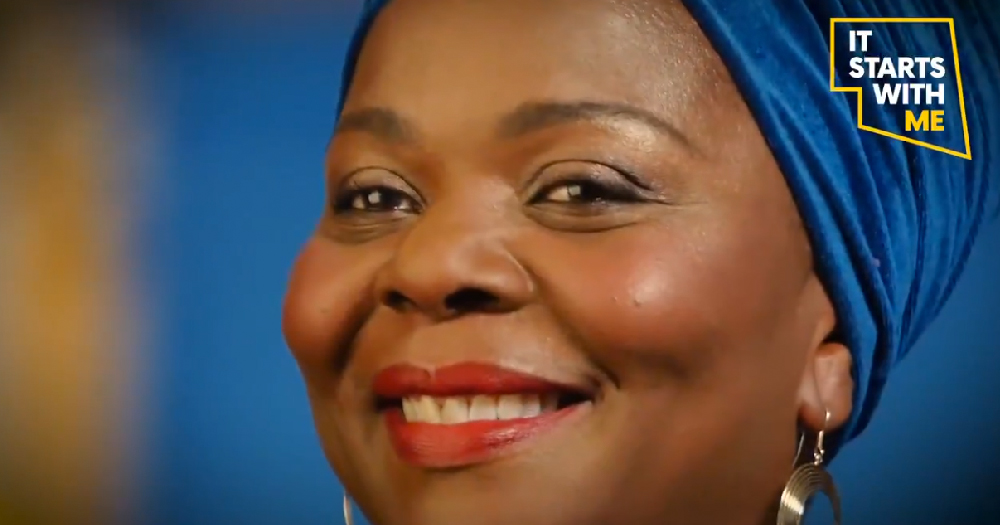Terrence Higgins Trust has released a new video as part of their campaign ‘Can’t Pass It On‘, which aims to tackle the out-of-date beliefs about HIV, in an effort to end the stigma and discrimination faced by those living with HIV.
The campaign centres around the findings in the landmark Partner and Partner 2 studies which provide medical evidence that people with an undetectable viral load cannot pass on HIV.
In the latest video from the series, we are introduced to Charity who was diagnosed in 2003.
https://www.facebook.com/TerrenceHigginsTrust/videos/456414178560753/
In the video, Charity shares, “Nowadays people living with HIV are living healthier lives. All that I focus on is my medication when I wake up in the morning, take my medication and that’s it, I go do anything it doesn’t restrict me from doing anything, I just do my own thing.”
Charity’s story is one that we are hearing more and more as the realities of living with HIV have changed drastically for the better in recent years thanks to scientific progress.
At the launch of the Cant Pass It On campaign last year, Dr Michael Brady, Medical Director at Terrence Higgins Trust and National Advisor for LGBT+ Health at NHS England, said:
“Progress in the treatment for HIV is one of the greatest triumphs of modern medicine. In just a couple of decades effective treatment means a HIV diagnosis has gone from a virtual death sentence to us now saying with confidence – and without doubt – that people living with HIV who are on effective treatment cannot pass the virus on to their sexual partners.
“This has an incredible impact on the lives of people living with HIV and is a powerful message to address HIV-related stigma. And while just 19% of people know about this progress, we have a duty to keep on shouting about it until everyone knows the truth about HIV.”
The invisibility of women living with HIV is still one of the biggest issues in addressing the stigma associated with HIV.
During last night’s In And Out with Dr Mary McAuliffe, James Grennell and Dr Cormac O’Brien, they discussed the Histories and cultural representations of HIV/AIDs in Ireland.
https://www.facebook.com/137357969666256/videos/683613608852759/
Women and AIDS was discussed where James shared his research into Lesbian Health Action which emerged out of Gay Health Action where women decided to start publishing information specifically for women.
They published a number of leaflets, such as ‘Women and AIDS’ and spoke about broader health issues for lesbian women at that time as female sexual health was rarely covered in other publications at the time.
Speaking about the need for an Irish AIDS Memorial, Grennell said: “It’s something that we’ve never really addressed as a nation. We would be memorialising an invisible illness that was seen to infect invisible people.”
© 2020 GCN (Gay Community News). All rights reserved.
Support GCN
GCN is a free, vital resource for Ireland’s LGBTQ+ community since 1988.
GCN is a trading name of National LGBT Federation CLG, a registered charity - Charity Number: 20034580.
GCN relies on the generous support of the community and allies to sustain the crucial work that we do. Producing GCN is costly, and, in an industry which has been hugely impacted by rising costs, we need your support to help sustain and grow this vital resource.
Supporting GCN for as little as €1.99 per month will help us continue our work as Ireland’s free, independent LGBTQ+ media.
